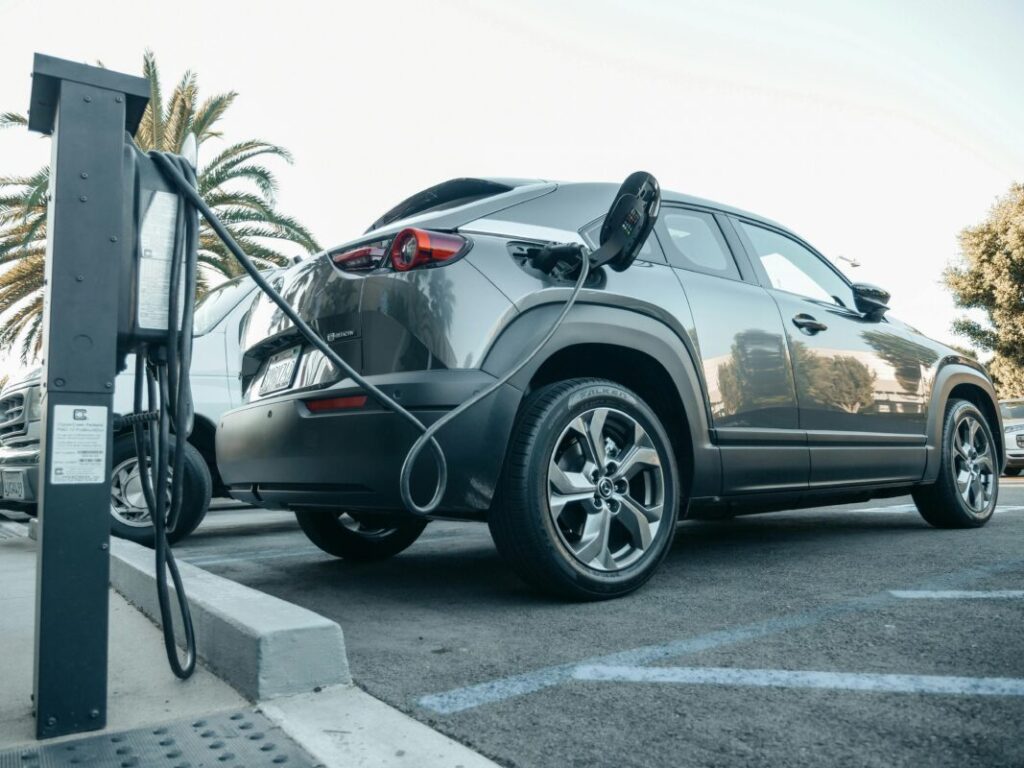Analysis shows that EV drivers without home charging would save an average £145 a year if ‘pavement tax’ were removed.
EV chargepoint mapping service ZapMap has published a report showing that making the VAT rate for public EV charging 5%, the rate applied for home charging, would save money for all EV drivers; even those with at-home chargers would benefit from annual savings of £29 per year.
Reducing the VAT rate on public charging would result in a reduction of tax the Treasury received from EV drivers of around £85 million in 2025. This would increase as EV uptake increases, so the loss would rise to £143 million in 2027 and £315 million in 2030. Those figures can also be considered the collective amount saved by EV drivers each year.
However, that pales in comparison to the £2 billion the government committed to freezing fuel duty in its Autumn Budget.
The current system charges VAT at 5% for domestic energy and at 20% for energy on public charging. Referred to as ‘pavement tax’, this sees those without access to at-home charging pay more per charge. This is a known issue in the EV industry and the key area of focus of the lobby group FairCharge, which campaigns for EV affordability.
FairCharge has written to the Treasury chief secretary, Darren Jones, asking that it cut the VAT on public charging to 5%, stating that as the UK is now Europe’s most successful EV market, “it is surprising how reluctant the Treasury is on the issue”.
The group’s founder, Quentin Willson, said: “So many voices are now calling for a cut in the VAT on public charging that the Treasury’s negative response seems almost churlish. We spoke about this unfair tax anomaly before Labour came to power. It’s time for you and I to talk again.”
Car manufacturers back calls for lower VAT
ZapMap’s data focuses on battery EVs only, and is based on its EV charger survey and price index, as well as mileage figures from the Department for Transport and number of registered EVs from the Society of Motor Manufacturers and Traders (SMMT).
The group managing director of car manufacturer Stellantis, which owns British carmaker Vauxhall, said that the pavement tax runs the risk of “creating a two-tier motoring system where those this a driveway pay less to get around than those without”.
Eurig Druce stated Stellantis’ support for the FairCharge campaign, as did CEO of Instavolt Delvin Lane. Chargepoint operators (CPOs) including Instavolt insist that any cut to VAT would immediately pass on to consumers.
Lane commented: “This small change would bring fairness to those without home chargers, encourage more drivers to switch, and support price parity between home and public charging. It’s surprising that there has been no movement on this. With so much at stake for effectively so little cost, the Government should act now to remove this barrier and avoid stalling the EV revolution.”
Managing director of the UK branch of electric car brand Polestar, Matt Galvin, added: “This is an urgent requirement to support EV adoption, particularly to encourage the private buyer, and prevent unfair costs to those without driveways.
“Manufacturers have invested billions of pounds in EV technology to meet mandates and now the industry needs the Government to play their vital role in achieving a net zero car market which is pivotal to improve air quality and slow down climate change.”
Although EV market share broke records in January and the zero emissions vehicle (ZEV) mandated number of EVs were sold in 2024, this is predominantly driven by fleet uptake and incentivising private buyers is a key concern among manufacturers that have invested in the EV shift.
As higher tax is anticipated on electric cars from this year, with the end of tax breaks afforded to EV owners, the government should act to ensure private buyers are able, and encouraged, to swap out their petrol or diesel fuelled cars.
The government recently announced its National Wealth Fund would invest £55 million in public charging company Connected Kerb to increase the rollout of public charging provision in answer to consumer fears that the network is insufficient to support travel by EV. This will do nothing to speed uptake for those who cannot access at home charging, though: the 20% VAT rate applied to the electricity Connected Kerb’s chargers use will remain a deterrent.






